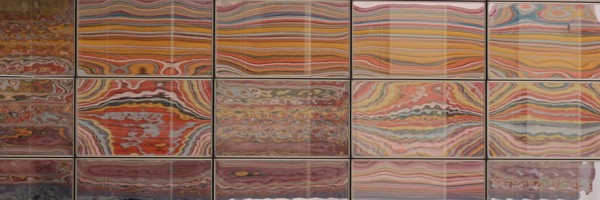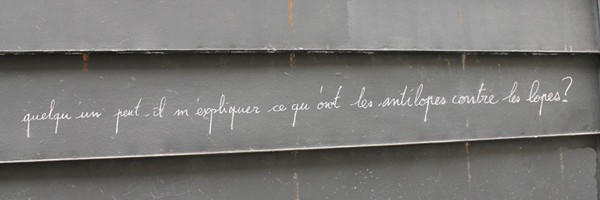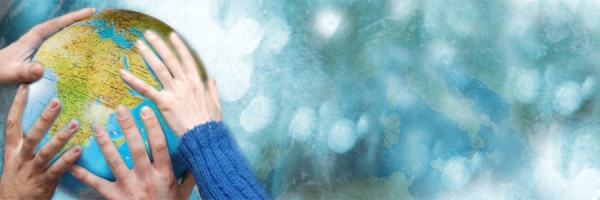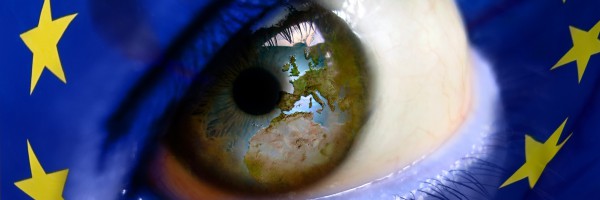Euroacademia Conferences
 Europe Inside-Out: Europe and Europeanness Exposed to Plural Observers (9th Edition) April 24 - 25, 2020
Europe Inside-Out: Europe and Europeanness Exposed to Plural Observers (9th Edition) April 24 - 25, 2020 Identities and Identifications: Politicized Uses of Collective Identities (9th Edition) June 12 - 13, 2020
Identities and Identifications: Politicized Uses of Collective Identities (9th Edition) June 12 - 13, 2020 8th Forum of Critical Studies: Asking Big Questions Again January 24 - 25, 2020
8th Forum of Critical Studies: Asking Big Questions Again January 24 - 25, 2020 Re-Inventing Eastern Europe (7th Edition) December 13 - 14, 2019
Re-Inventing Eastern Europe (7th Edition) December 13 - 14, 2019 The European Union and the Politicization of Europe (8th Edition) October 25 - 26, 2019
The European Union and the Politicization of Europe (8th Edition) October 25 - 26, 2019 Identities and Identifications: Politicized Uses of Collective Identities (8th Edition) June 28 - 29, 2019
Identities and Identifications: Politicized Uses of Collective Identities (8th Edition) June 28 - 29, 2019 The European Union and the Politicization of Europe (7th Edition) January 25 - 26, 2019
The European Union and the Politicization of Europe (7th Edition) January 25 - 26, 2019 7th Forum of Critical Studies: Asking Big Questions Again November 23 - 24, 2018
7th Forum of Critical Studies: Asking Big Questions Again November 23 - 24, 2018 Europe Inside-Out: Europe and Europeanness Exposed to Plural Observers (8th Edition) September 28 - 30, 2018
Europe Inside-Out: Europe and Europeanness Exposed to Plural Observers (8th Edition) September 28 - 30, 2018 Identities and Identifications: Politicized Uses of Collective Identities (7th Edition) June 14 - 15, 2018
Identities and Identifications: Politicized Uses of Collective Identities (7th Edition) June 14 - 15, 2018

Re-Inventing Eastern Europe (The Second Edition)
15 – 16 November 2013, Prague, Czech Republic
Grand Majestic Plaza Hotel
The Euroacademia International Conference ‘Re-Inventing Eastern Europe’ aims rather than asserting to make a case and to provide alternative views on the dynamics, persistence and manifestations of the practices of alterity making that take place in Europe and broadly in the mental mappings of the world. It offers an opportunity for scholars, activists and practitioners to locate, discuss and debate the multiple dimensions in which specific narratives of alterity making towards Eastern Europe preserve their salience today in re-furbished and re-fashioned manners. The conference aims to look at the processes of alterity making as puzzles and to address the persistence of the East-West dichotomies.
New Panels:
● Art as Cultural Diplomacy: (Re)Constructing Notions of Eastern and Western Europe (Panel Organizer: Cassandra Sciortino, University of California, Santa Barbara, USA)
● Visual Urban Transformations: Transition and Change in Urban Image Construction in Central and Eastern Europe
● The Readings of the Past: On Memory and Memorialization
● Space and Imaginary Geographies of Eastern Europe

The First Euroacademia Convention of European Studies
Naming the Crisis of Europe and Assessing its Impact
24-26 October 2013, Brussels, Belgium
The Euroacademia Convention of European Studies ‘Naming the Crisis of Europe and Assessing its Impact’ aims to address the ongoing challenges, to map the current state of reflection on the topic of the European crisis and to look at available scenarios for the future of Europe. No other field than European Studies has a larger portfolio of available disciplinary instruments, models and paradigms that are expected to provide answers to unfolding realities. If no single disciplinary trend can provide neither sufficient explanations of the ongoing events nor reasonable predictions, a dialogue between schools, trends, paradigms and models in European Studies could forward a mosaic of alternatives for reflection at hand.

Reviewing the Trends: The European Union from a Regulatory Institution to a Post-national Cosmopolitan Order
18-20 July 2013, Brussels, Belgium
The Euroacademia International Conference ‘Reviewing the Trends: The European Union from a Regulatory Institution to a Post-national Cosmopolitan Order’ aims to bring openly on the floor of debate and discussion both the past and the contemporary trends in the study of the European Union trough the use of the magnifying glasses. The conference seeks to create an opportunity for evaluative accounts of essential developments within the study of the European Union. These accounts are to be understood as creative moments for articulating current concerns in the frame of disciplinary dialogue and methodological constrains or opportunities provided by the established traditions in the field of European studies. It is an opportunity for revisiting and assessing the persistent epistemological challenges in the field, the inheritances and their creative potential, the orthodoxies but also the heresies.
The conference welcomes panel and paper proposals dealing with one or multiple traditions, trends and methodological choices within the arena of European Studies. The panels and papers are expected to provide a critical assessment or a comprehensive valorization of one of the central or out of the mainstream approaches applied to the European Union. Papers that address new puzzles, alternative theoretical choices or methodological corrections/innovations are welcomed. Both theoretical and empirical enquiries are equally considered.

Identities and Identifications: Politicized Uses of Collective Identities
18-20 April 2013, Zagreb, Croatia
Esplanade Zagreb Hotel
The Euroacademia International Conference ‘Identities and Identifications: Politicized Uses of Collective Identities’ aims to scrutinize the state of the art in collective identities research, to bring once more into debate the processes of identity making, identity building in both constructivist or de-constructivist dimensions. It is the aim of the Euroacademia conference to open the floor for dynamic multi-dimensional and inter-disciplinary understandings of identities in their historic formation or in the way they shape the present and future of organizations or human communities.

Europe Inside-Out: Europe and Europeanness Exposed to Plural Observers
The Third Edition
Prague, Czech Republic, 15-16 March 2013
Grand Majestic Plaza Hotel
What is Europe and its place in the world? Is there something particular that sedimented in time and through a controversial history a European way? How does Europe see itself and how do others see it? Is Europe inclusive or club-based exclusive? Is Europe becoming a normative power or just envisages itself as one? Is the European multiculturalism a fact or an ideal? Is the European Union a reflection of Europe or an appropriation of it? These are just few questions out of an enormous space for inquiry that are to be addressed and confronted within the topic of the conference.
The Euroacademia Global Conference ‘Europe Inside-Out: Europe and Europeaness Exposed to Plural Observers’ became a regular event to take place in every year in a different European location. After two successful editions – the first one in Vienna and the second one in Paris – Euroacademia moves the stage of reflection, sharing, dialogue, debate and research dissemination on Europe to Prague.

The Euroacademia Global Forum of Critical Studies
The Euroacademia Global Forum of Critical Studies
13-15 December 2012, Prague, Czech Republic
Grand Majestic Plaza Hotel
Deadline for Papers 5 November 2012
Some say that the 21st Century or modernity altogether made humans more concerned with doing rather than being. As the classical Greek civilization valued the most reflexive thinking as a form of freedom from natural necessities, contemporary times profoundly involve individuals and the imaginary accompanying social practices in a restless logic of consumption, competition and engagement that profoundly – or some would say, radically – suspends or indefinitely postpones the autonomous capacity of human beings to question and reflect upon the social order and the meaning of social practices. The fast advancement of the logic of post-industrial societies, the gradual dissolution of alternative models to the capitalist logic and a multitude of other alerting factors pushed ahead a global spread culture of one-dimensional productions of meaning that advances a closure rather than a constant reflexive re-evaluation of cultural/social practices.
The Euroacademia Global Forum of Critical Studies aims to bring into an open floor the reflexive and questioning interaction among academics, intellectuals, practitioners and activists profoundly concerned with evaluative understandings of the world we’re living in. The focus of the forum is to initiate an arena where no question is misplaced and irrelevant as long as we acknowledge that evaluation, critical thinking and contestation are accessible trajectories to better understand our past, present and alternative scenarios for the future.

The Second International Conference ‘The European Union and the Politicization of Europe’
6-8 December 2012
Mercure Budapest City Center Hotel, Budapest, Hungary
Keynote Speaker: Uwe Puetter, Central European University
Is the EU becoming an increasingly politicized entity? Is the on-going politicization of Europe a structured or a messy one? Do political parties within the European Parliament act in a manner that strengthens the view of the EU as an articulate political system? Are there efficient ways for addressing the democratic deficit issue? Can we find usable indicators for detecting an emerging European demos and a European civil society? Does a Europeanization of the masses take place or the EU remains a genuinely elitist project? Did the Lisbon Treaty introduced significant changes regarding the challenges facing the EU? Can we see any robust improvements in the accountability of the EU decision making processes? Are there alternative ways of looking at the politicization processes and redistributive policies inside the EU? These are only few of the large number of questions that unfold when researchers or practitioners look at the EU.
It is the aim of the Second Euroacademia International Conference ‘The European Union and the Politicization of Europe’ to address in a constructive manner such questions and to offer o platform for dissemination of research results or puzzles that can contribute to a better understanding of the on-going process of politicization within the European Union.

International Conference: Re-Inventing Eastern Europe
17 – 19 May 2012, Vienna, Austria
Hotel De France
Salon Franz Joseph
Keynote Speakers: Larry Wolff and Branislav Radeljic
The Euroacademia International Conference ‘Re-Inventing Eastern Europe’ aims rather than asserting to make a case and to provide alternative views on the dynamics, persistence and manifestations of the practices of alterity making that take place in Europe and broadly in the mental mappings of the world. It offers an opportunity for scholars, activists and practitioners to locate, discuss and debate the multiple dimensions in which specific narratives of alterity making towards Eastern Europe preserve their salience today in re-furbished and re-fashioned manners. The conference aims to look at the processes of alterity making as puzzles and to address the persistence of the East-West dichotomies.

The Second Euroacademia Global Conference – Europe Inside-Out: Europe and Europeaness Exposed to Plural Observers
27-28 April 2012
Hotel Novotel Paris Tour Eiffel
61 Quai de Grenelle, 75015, Paris, France
What is Europe and its place in the world? Is there something particular that sedimented in time and through a controversial history a European way? How does Europe see itself and how do others see it? Is Europe inclusive or club-based exclusive? Is Europe becoming a normative power or just envisages itself as one? Is the European multiculturalism a fact or an ideal? Is the European Union a reflection of Europe or an appropriation of it? These are just few questions out of an enormous space for inquiry that are to be addressed and confronted within the topic of the conference.

The European Union and the Politicization of Europe
8-10 December 2011, Vienna, Austria
Hotel De France
Salon Franz Joseph
Keynote Speaker: Giandomenico Majone
Is the EU becoming an increasingly politicized entity? Is the on-going politicization of Europe a structured or a messy one? Do political parties within the European Parliament act in a manner that strengthens the view of the EU as an articulate political system? Are there efficient ways for addressing the democratic deficit issue? Can we find usable indicators for detecting an emerging European demos and a European civil society? Does a Europeanization of the masses take place or the EU remains a genuinely elitist project? Did the Lisbon Treaty introduced significant changes regarding the challenges facing the EU? Can we see any robust improvements in the accountability of the EU decision making processes? Are there alternative ways of looking at the politicization processes and redistributive policies inside the EU? These are only few of the large number of questions that unfold when researchers or practitioners look at the EU. It is the aim of the Euroacademia International Conference ‘The European Union and the Politicization of Europe’ to address in a constructive manner such questions and to offer o platform for dissemination of research results or puzzles that can contribute to a better understanding of the on-going process of politicization within the European Union.


